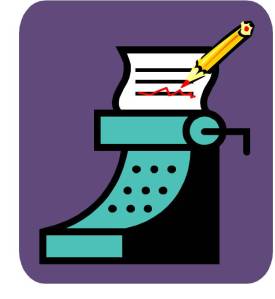What Novelists Can Learn from Copywriters
Posted: 04/20/2013 Filed under: Writing | Tags: aspiring novelist, copywriting, editing, writing 6 CommentsAs an aspiring novelist (isn’t everyone an aspiring novelist?) I know all too well the fear that comes with an attempt at “serious writing”. I know what it’s like to sweat and slave and struggle to eek out just a few sentences. I know what it’s like to think you’re a super-fantastic-awesome storyteller, until you join your first critique group – and how then even the mildest, softest, kindest criticism feels like a blow to the gut. I know the fretting, plotting and angst that go into turning a series of ideas into a story– something that people want to read, that engages and enthralls and leaves the reader panting for MORE. I know all about it.
As a copywriter, I also know some other stuff. I know what it’s like to be assigned a 600-word article, punch out 1,000+ words and turn it in, figuring that more is better and the client just got a big bonus…. and then to be told, no, it needs to be no more than 700 words, max. I know what it’s like, at that point, to think “Okay, what am I going to cut? What vital piece of information will the reader now be forced to miss out on because my client can’t accept all the lovely,worth-their-weight-in-gold words that I’ve just GIFTED to them? I’ll go ahead and do this thing, but it’s not going to be good… not good at all.” And then you do it and find that, lo and behold, you were wrong… a few hundred words can indeed be chopped (fully 1/3 of the work, mind you!) and in fact the article – which is, after all, a story – will still be good. In fact, better.
I know what it’s like to then have the client say to you “Actually, due to space constraints, this article has to be cut down to 300 words.” And you think: “300 paltry words?! Now that is ridiculous. There’s no way I could possibly cut this work of art down to 300 words. What crucial points will the poor reader miss out on now? I’ve already taken out some of the best bits. Impossible. Okay… well, I’ll do it, but now it’s REALLY gonna suck.” And you know what? You do it and… no, it couldn’t be… better?!
Yep. It’s great. It’s so concise, so meaningful – every word makes an impact! Every vital fact has not only been preserved, but now each one simply shines. Ahhh… the art of concision. Such an elusion to so many novelists. We can’t cut our precious stories… how will we present every nuance of every character? How will the readers get all the back-story they deserve? How can we possibly show – not tell, no, no – in fewer words? Well, you should give it a try. I know you’ll like it… once it’s over. You’ll see. It’ll be for the story’s own good. Grab your red pen, and just start crossing out. Fear not the delete key and the backspace, dear author – they are perhaps the best tools in your arsenal.


I’m so long winded. This is my biggest challenge on my writing path. Interesting how I managed to make this one comment concise when I usually respond with at least two paragraphs!
Saronai, It’s definitely tough! I like to save multiple versions of my work; that way I at least have a record of my “long-winded” version. This is helpful because I can still reference my original ideas at any time, and I can compare the old version to the new one. For me, the shorter, more concise version really is always better… but if I couldn’t make the comparison, I’d wind up lamenting my lost work and looking at the old, long version through rose-colored glasses. 🙂
Like many other novelists, I’m also a copywriter. I began copywriting with hard copy and moved up to online blogs and business content. Now, they call that “content writing.” Either way, in copywriting or content writing, the objective is the same. Keyword percentages comprise most of copywriting and content writing. The structure of novels doesn’t necessarily require the same type of consciousness of keyword percentages and there’s the freedom to write without worrying about the “word police” calling every word you write “plagarism,” even when you authored the original article the word police call “plagarism.”
As a copywriter or content writer, I often have to write titles only for clients. They use these titles for the subjects of their online blogs and websites. It takes a little adjustment to have a single subject you need to write 25 titles for. But, this is one way to achieve the goal of brevity in content and copy.
Eleanore, Writing 25 titles for one subject does sound tough. As an email marketer, I typically have to come up with multiple subject lines, but not 25! 😉
Would you please contact me for a possible repost to my blog?
Nice post here. I too am a journalist to tech writer to content writer to blogger to author. It can be such a meandering path… with words that lead us.
Hi, Rusty! I will send you an email! Thanks so much for your interest, I am honored at your request.
– Christal 🙂